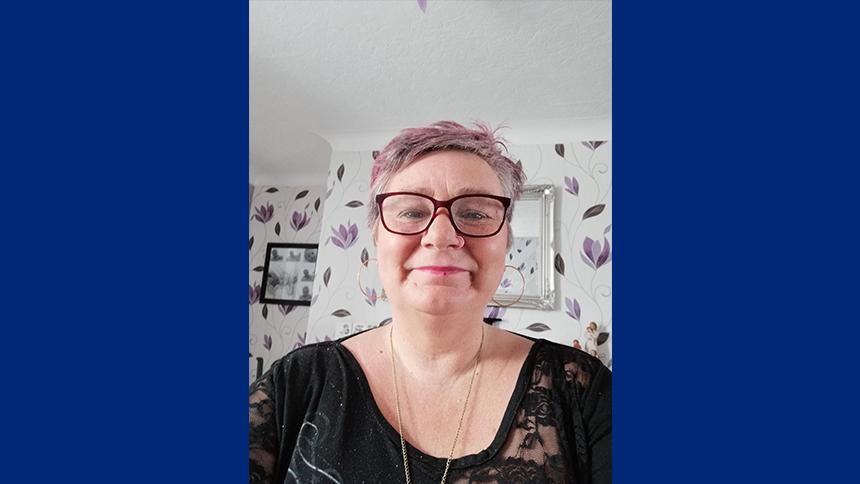Telling MPs about the realities of life with dementia
Michelle Nelson-Greensmith was at our Labour conference stand this year to tell MPs about the realities of dementia.
When I heard about going to party conferences and speaking to MPs, I thought, ‘Oh, that sounds really interesting!’
You don’t get these opportunities to speak to the people that run the country and have influence.
They need to know how dementia affects people. I’m glad I did it – I loved every single minute of it.

Constituent power
Getting people to invite their MPs to come and talk to us was brilliant – it worked to a tee.
So many MPs came saying, ‘My constituents emailed me and said I need to visit this stand.’
We got them to play a maze game with a ball bearing, but we made them do it with one hand to represent the challenges so many people have navigating the diagnosis system.
We timed them and had a leaderboard, so all these MPs were competing against each other. That was brilliant as well because more people came to have a look.
Need to know
What did I tell them about being diagnosed? That in just 10 minutes they’d stopped me driving, I’d lost my job and been diagnosed with dementia.
For another 11 years, you’d have had my tax and national insurance.
I don’t know what’s going to happen, what my future is as I get worse.
When I was diagnosed, the doctor gave me four years left to live and said he’d call the police if I got back in my car to drive home. He let me go crying, I was in floods of tears.
When I told the MPs this, they were dumbfounded. They were just looking at me as though, ‘Does this actually go on?’
They need to know these things. It’s not just that you’ve been diagnosed with dementia, it’s a domino effect – everything starts to fall down.
My husband had to sell the house to pay off bills because we’d lost my income. We had to relocate, so he had to give up work.
They don’t think about the things that happen when you get a diagnosis when you’re young.
And benefits don’t come anywhere near what you can earn when you’re working.
Hitting a nerve
I don’t think dementia has had the recognition that it needed.
People just say, ‘Oh, I didn’t realise it was so big, we didn’t realise it was the biggest killer.’ That’s because it’s not talked about.
The government’s always playing catch-up now because they’ve let it go too far.
It felt very important that MPs were hearing about people’s experiences in person – a lot more important than I thought it was going to be.
I’m hoping that I’ve hit a nerve with them – that they’ll go back and I keep popping in their heads.
I hope that every time they hear the word ‘dementia’ they think, ‘Oh I remember speaking to Michelle.’
Campaign with us
Help us challenge and change the issues faced by people affected by dementia.

